Myanmar unrest: Dozens killed in bloodiest day since start of anti-coup protests
Unrest continues in Myanmar. Street protests have now reached new heights, with public anger building up and the military crackdown growing more frequent and brutal.
Protesters poured out into the streets on Monday, with media reports citing witnesses as saying three people were killed in the town of Myingyan and two in Aunglan.
Sunday turned out to be the deadliest day since protests erupted across the country against a February 1 coup by miliitary rulers that saw the detention of elected leader Aung San Suu Kyi.
Clashes broke out between protesters and security forces in the commercial hub and former capital, Yangon. Media reported a bloody police crackdown in a Yangon suburb leaving dozens of protesters dead.
Assailants attacked several Chinese-financed factories and set them on fire on Sunday.
Security forces reporteldy killed 34 protesters in the impoverished Hlaingthaya industrial suburb of Yangon. The Assistance Association for Political Prisoners (AAPP) advocacy group added that a further 16 protesters were killed in other places. A police officer was also killed in clashes.
State media announced that security forces arrived after four garment factories and a fertilizer plant were set ablaze and about 2,000 people stopped fire engines from reaching them.
China is believed by protesters to support the ruling junta in Myanmar.
The Chinese embassy said the Chinese staff in those factories had been injured and trapped in the arson attacks.
"China urges Myanmar to take further effective measures to stop all acts of violence, punish the perpetrators in accordance with the law and ensure the safety of life and property of Chinese companies and personnel in Myanmar," the embassy said in a statement.
China's Global Times newspaper reported that 32 Chinese-invested factories were "vandalized in vicious attacks" that caused damage worth $37 million and injuries to two Chinese employees.
The ruling junta enforced martial law in Hlaingthaya and Shwepyitha districts of Yangon.
"The perpetrators, attackers, enemies of the people of Myanmar, the evil SAC (State Administrative Council) will be held accountable for every drop of blood that shed," Doctor Sasa, a representative of elected lawmakers from the assembly that was ousted by the army, said in a message.
Christine Schraner Burgener, the United Nations Special Envoy for Myanmar, condemned what she described as the "ongoing brutality" in the country.
Burgener said she had "personally heard from contacts in Myanmar heartbreaking accounts of killings, mistreatment of demonstrators and torture of prisoners over the weekend.”
The fugitive acting leader of Myanmar's parallel civilian government Mahn Win Khaing Than, vowed to start a "revolution" against the junta in his first public address since the military takeover.
The vice-president of the Committee for Representing Pyidaungsu Hluttaw, which is comprised of ousted senior officials from the ruling National League for Democracy, also said the government will seek to give people the legal right to defend themselves.
Japan's chief cabinet secretary Katsunobu Kato said on Monday Tokyo was monitoring the recent developments in Myanmar and preparing a response.
"Going forward, Japan will consider how to respond to the situation in Myanmar in terms of economic cooperation and policies by monitoring developments in situation, while taking into consideration responses from countries concerned."
At least 138 people have been killed since the junta's seizure of power last month, based on a tally by the AAPP. Over 2,100 people have been arrested, it said.
"The horrific increase in the number of protesters killed by live fire over the weekend shows just how emboldened Myanmar’s security forces are to target protesters with live ammunition," Phil Robertson, deputy Asia director of Human Rights Watch said in a statement.
Ousted civilian leader Suu Kyi was to appear in court on Monday, but her the video hearing was adjourned due to the internet being blocked.
The Yangon court hearing was expected to start by video link around 10 am (0330 GMT), but was postponed until March 24, her lawyer told AFP.
"There's no court hearing because there's no internet and the hearing is conducted by video conference... We cannot do video," he said.
Suu Kyi spent more than 15 years in house arrest under previous military rule.
The Nobel laureate faces charges of possessing unlicensed walkie-talkies, violating coronavirus restrictions, breaching telecommunications laws and intent to cause public unrest.
Military authorities have also accused her of accepting illegal payments of $600,000 in cash as well as a large quantity of gold -- allegations her lawyer says are "groundless."
VIDEO | Iranian embassy in Malaysia celebrates Islamic Revolution anniversary
VIDEO | Press TV's news headlines
VIDEO | Hundreds protest Israeli president's visit in front of Australia's parliament house
Iran officials hail massive rallies marking Islamic Revolution anniversary
Global congratulations pour in for anniversary of Islamic Revolution
Pezeshkian: Iranians have taken to streets to defend country
Netanyahu pushing to turn US into ‘slave state for Israel’s expansionist dreams’: Analyst
Iran’s security chief meets with Yemen's Ansarullah official in Oman


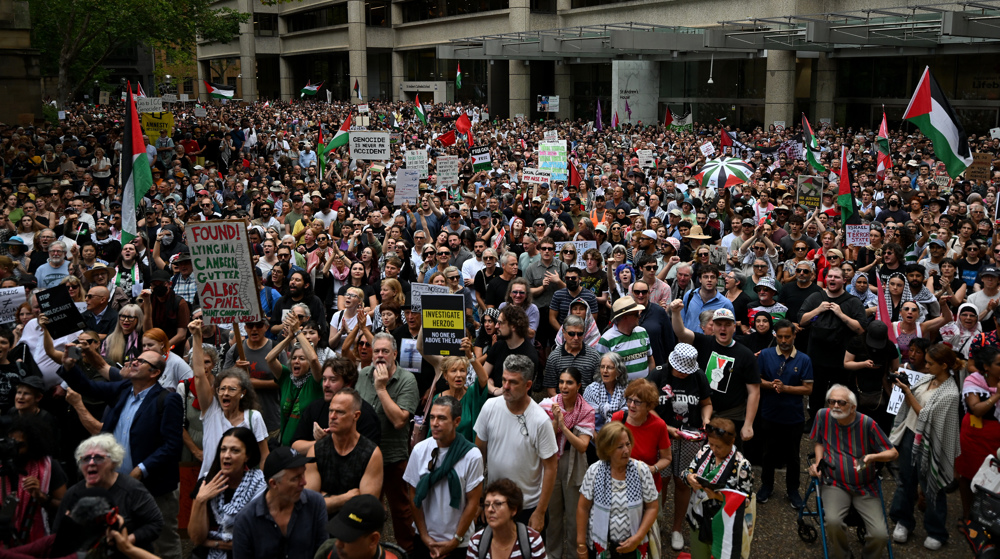
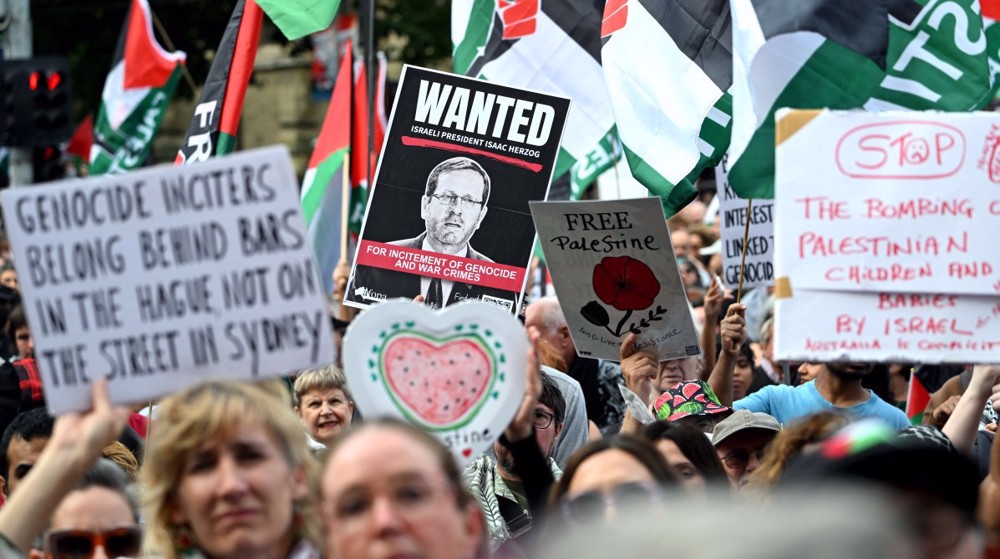
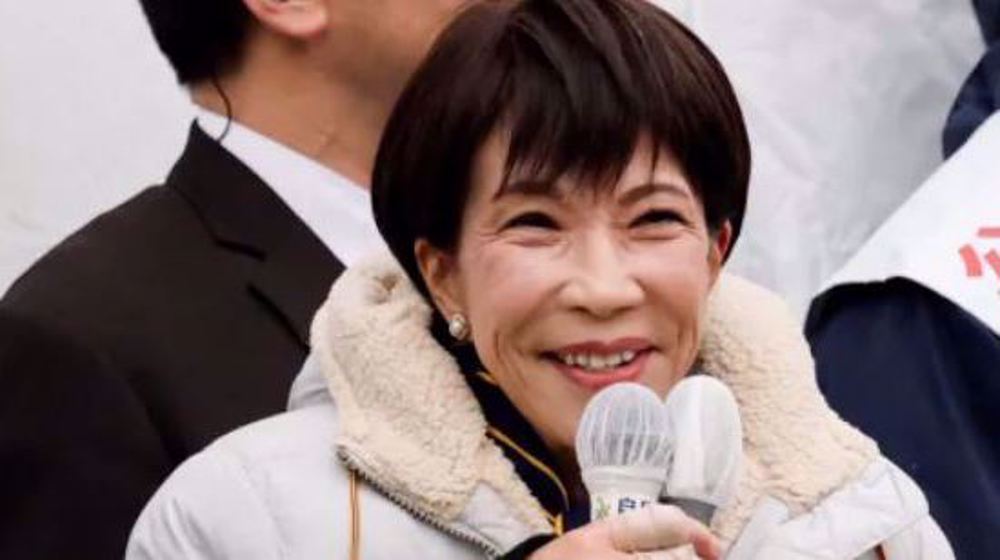




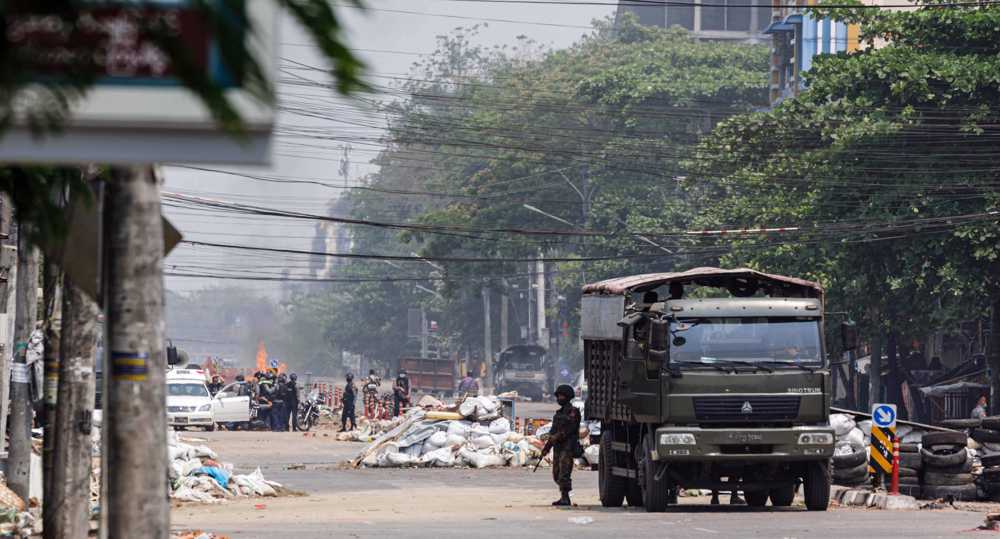

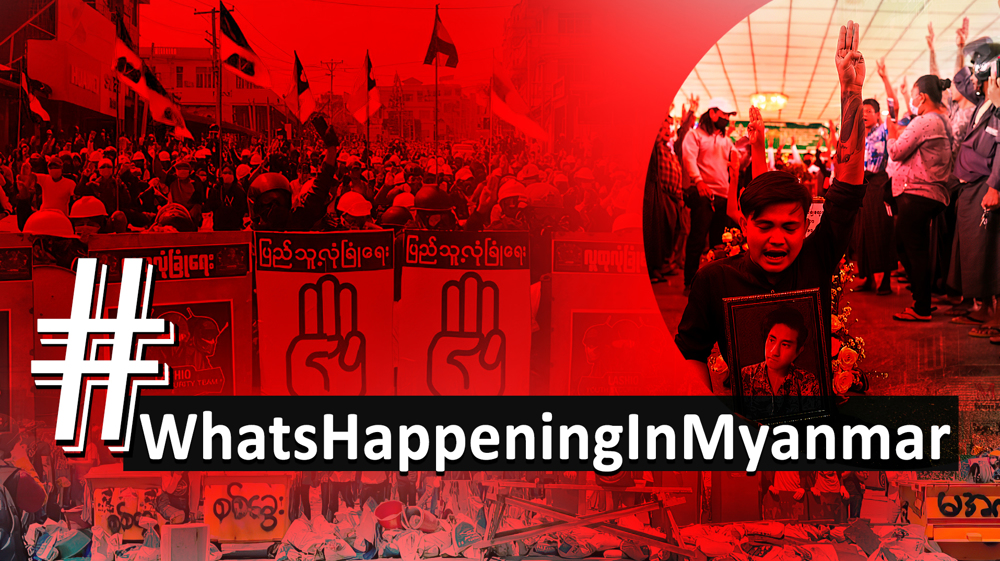
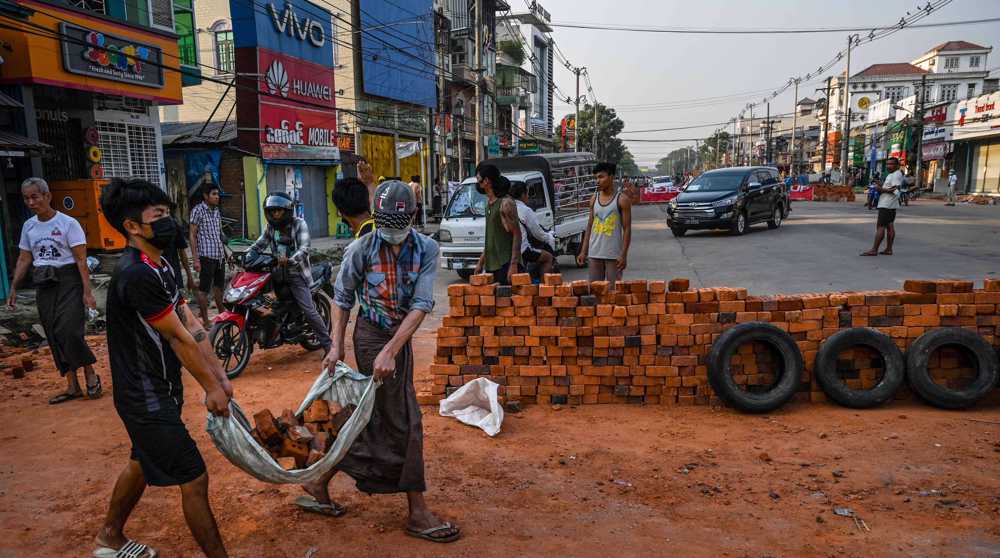

 This makes it easy to access the Press TV website
This makes it easy to access the Press TV website